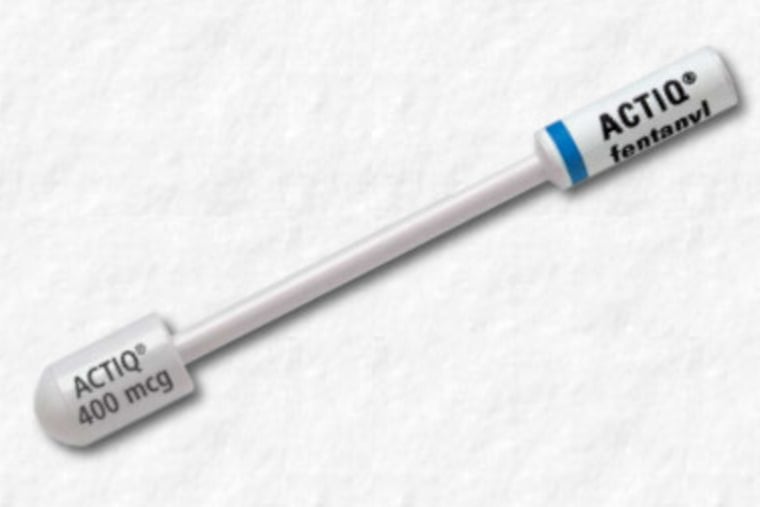Safety considerations for patients taking oral fentanyl products
These products, which include under-the-tongue sprays and lollipop-type preparations, are important components of the management of patients with serious medical conditions that can occasionally cause uncontrollable pain.

I recently attended a meeting at the U.S. Food and Drug Administration as a member of the Anesthetic and Analgesic Drug Products Advisory Committee. The FDA uses advisory committees to obtain expertise and opinions related to pending drug approvals, or to evaluate trends in drug-related complications. These meetings are open to the public and everything we discuss is available on the FDA website.
At our most recent meeting we discussed the FDA-mandated safety program called Risk Evaluation and Mitigation Strategy (REMS), which took effect in early 2012. The intention of this program is to help decrease overdose, abuse, and accidental ingestion of fentanyl products that are meant to be absorbed in the mouth. These products, which include under-the-tongue sprays and lollipop-type preparations, are important components of the management of patients with serious medical conditions that can occasionally cause uncontrollable pain.
Fentanyl is a potent synthetic opioid reserved for use in special clinical situations. For example, it is used by anesthesiologists to block the body's response to the pain of surgery. It can also be used to treat unusually severe pain due to certain medical conditions, such as cancer. But, it is so powerful that it should only be used by patients who are already tolerant to the effects of opioids. Otherwise, it will cause slowing of breathing that can be life-threatening.
>> READ MORE: Caught on tape: Pharma rep lies to get fentanyl lollipop tied to Cherry Hill death
Illegally sold opioid pills such as oxycodone are occasionally spiked with fentanyl during the illicit manufacturing process. When recreational drug users buy these pills on the street, it's often the fentanyl component that causes overdose and death.
The FDA's REMS program consists of several interventions designed to prevent complications from opioids, especially fentanyl products. These interventions include a three-part approach: online tests for physicians who prescribe opioids, educational programs for pharmacists who dispense opioids, and signed agreements for patients who take opioids. The goal of these materials is to enhance safety by reinforcing to all parties involved that these powerful opioids have important risks and should only be used by patients who meet certain criteria.
Patients with severe pain conditions who are prescribed oral or nasal fentanyl products should already be taking other forms of opioids on a regular basis and should already have become tolerant to their side effects. This will guard against (but not prevent entirely) life-threatening decreases in breathing when the fentanyl is used.
>> READ MORE: Suit: Drugmaker Teva responsible for Philly man's death in fentanyl overdose
In addition, patients with severe pain conditions should exercise extreme caution when switching between different types of fentanyl products because their potencies may not be the same. Switching to a different product that is more potent than expected may result in life-threatening cessation of breathing.
Finally, patients who are prescribed fentanyl products should be careful to keep the packages in a protected location that is inaccessible to children. The FDA has received reports of children who have overdosed after accessing and ingesting these products, on the assumption that is was a form of candy.
If you or someone in your household are currently prescribed a fentanyl product, make sure to discuss these important safety considerations with your physician and pharmacist. These drugs are too powerful to ignore.
Ronald S. Litman, D.O., M.L., is the medical director of the Institute for Safe Medication Practices, based in Horsham, and a pediatric anesthesiologist at Children's Hospital of Philadelphia. Follow him on Twitter at @DrRonLitman.